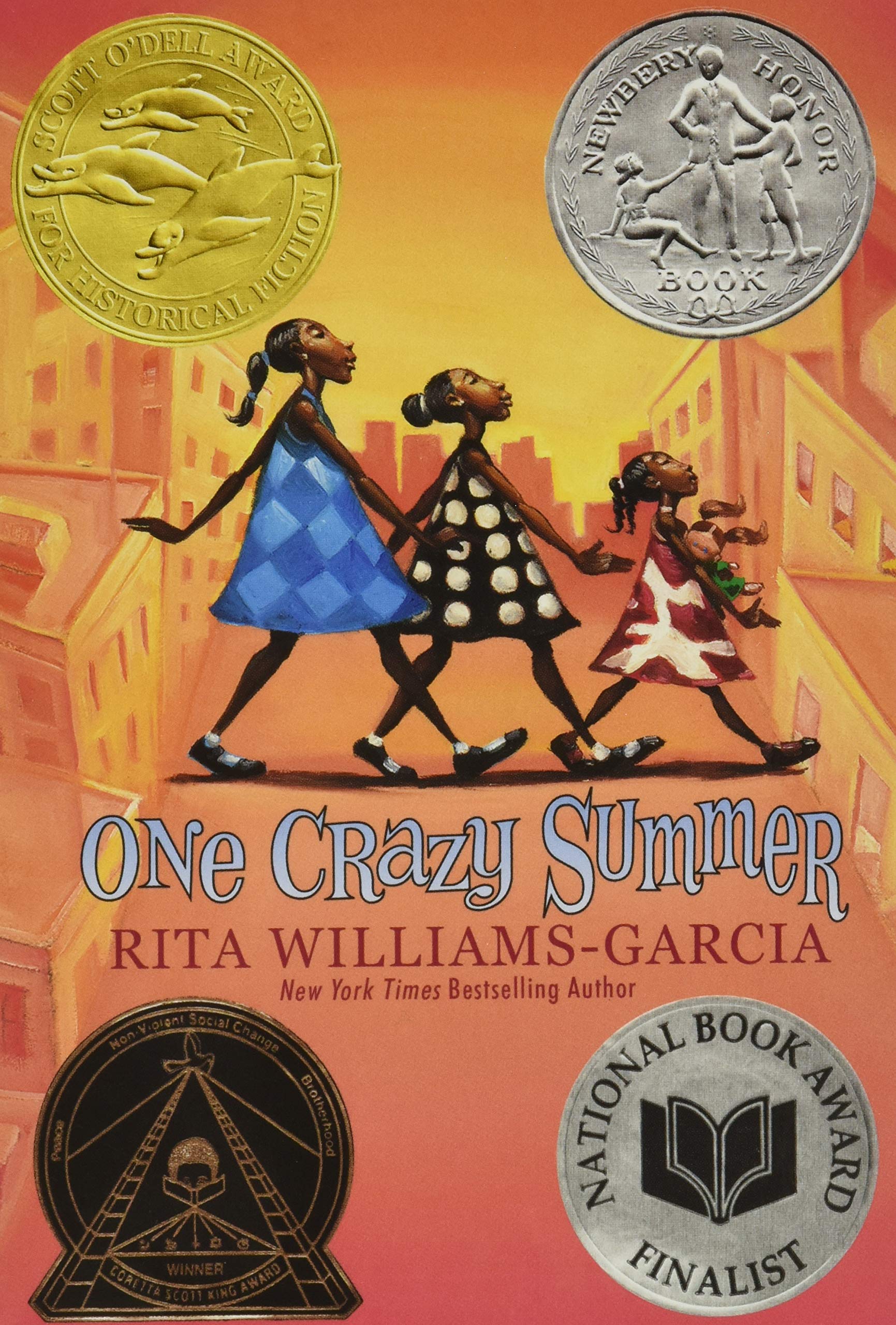
One Crazy Summer
2011 Newbery Honor Award recipient, 2011 Coretta Scott King Award, 2011 Scott O'Dell Award for Historical Fiction
Williams-Garcia's book One Crazy Summer shows an amazing breadth of cultural and historical information, but this is embedded in a book which is poignant and personal. It is beautifully written, but still has the voice of its 11-year-old narrator Delphine, who feels she needs to be a representative of her race. This means completely different things when she's at home in New York with her Pa and Big Ma, compared to when she's staying with her Black Panther poet mother Cecile (or "Nzila") in Oakland California. But it is not only about discovering what it is to be black in America, but what it means when your mother abandons you as a child. The multi-layered storytelling and the complexity of emotion make this an excellent read for fourth grade students or adults alike. In addition to the excellently crafted story, Williams-Garcia has excellent word choice. The power of words is important in this book -- as proven when Delphine is arguing with Brother Kelvin about whether her and her sisters are 'black' or 'colored' girls -- and the narration uses juxtaposition of these concepts of self identity through phrases and adages representing the dichotomy between black and colored, new and old, urban and country.
This book would be a great book to use in class when talking about the civil rights movement, including the Black Panthers, or any late 1960's American history. As Delphine says in the book, you never saw middle-aged female Black Panthers teaching classes in a summer school to a group of hungry kids in the news. The Black Panthers were always represented as a violent and radical group. I believe a lot of these ideas about the movement still exist in the present day -- and this book covers a number of aspects of the movement from Delphine's perspective. Although she is not completely on board with the movement and is a somewhat skeptical narrator, she represents an honest viewpoint that students could easily understand. On top of the historical aspects in the book, One Crazy Summer also shows struggles in terms of family and self-identity -- for African Americans, but also for any children coping with absent family members. All students could use this text to explore perspective in writing. How would this story be different if it was written from the perspective of the absent mother, Cecile? What parts of her story are we missing because it is narrated by Delphine? How would Big Ma write about Cecile or vice versa?
No comments:
Post a Comment